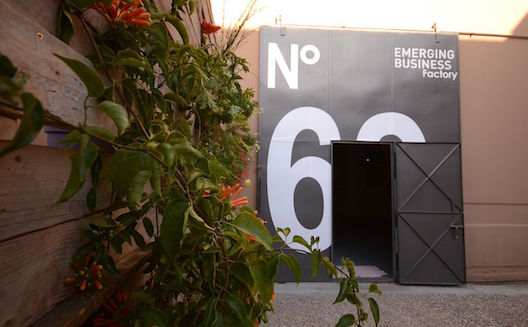Marrakesh gets its first incubator


Marrakesh, the fourth biggest city in Morocco, barely deserves an introduction anymore.
Two million tourists visit its old effervescent medina every year. Its community of French and European expats, mostly retired, is fueling a real estate boom. With its popularity as an international conference destination it's becoming Europe’s Las Vegas, and the culture of handcraft is keeping Morocco’s traditions alive.
Now, Taoufik Aboudia, a born and raised Marrakchi, manager of web agency Web Pick, and Pascal Chevalier, CEO of French media group Reworld Media, want the city to be known for its startups.
In December 2015 they opened Emerging Business Factory, an ambitious space dedicated to tech and media innovation.
Such a program is coming to life for the first time in Marrakesh. Until now, the city has had no technological park, no coworking space, and no structured entrepreneur community.
Transforming an old plant
Aboudia doesn’t want to rush it though. When others were talking about starting a technopole with the state’s money, he was thinking community.
“I prefer small projects that one can control. I told them why not start with a coworking space to get to know the digital players in Marrakech and experiment, move to an incubator, and then see if we’re ready for a technopole,” he explained.

After a year and a half of legal fights with the government, Aboudia managed to retrieve the rights over an old textile plant that Chevalier owned, with showrooms in the industrial district.
Six months of work later and the Emerging Business Factory opened.
The coworking space offers 120 work posts for 1,200 Moroccan dirhams (roughly US$110), per person per month, and a restaurant.
In the upcoming months, a sky farm, an experimentation lab for urban farming, will open on the rooftop, and a concept store on the ground floor.
At first, this space will be a showroom for the designer behind this transformation, later the store will be dedicated to young designers, in order to showcase the identity of the space and neighborhood.
The opening of a concept store and a restaurant is not just a financial decision.
“When you’re a geek, you’re always locked in a bubble, it’s important to meet people, open up,” Aboudia said.
And who knows, the visitors, mostly foreigners, could become their clients.
The incubator will follow a model similar to that of 50 Partners, the Parisian accelerator cofounded by Chevalier. Emerging Business Factory will work with startups for some funding, training, and a work space, in exchange for shares.
The incubator and accelerator will partner, through co-investment, applications and mentor exchange, Chevalier told Wamda. And business will start as soon as the team has selected enough mentors, most of whom will come from France.

at the Emerging Business Factory
kick-off event. (Image via Digital Business Club)
Marrakesh, a city full of potential
Morocco started to grab the startup world’s attention over the last two years.
“I believe a lot in the growth and innovation potential in Morocco, but also in the possibility to make it a hub for Africa,” Chevalier explained.
He’s far from the only one. In October 2015, famous French innovation hub NUMA opened a store in Casablanca.
The same month the International Selection Panel of Endeavor in Morocco was a massive success. For Google’s VP Mike Cassidy, Blackbox’s CEO Fadi Bishara, and many more mentors and entrepreneurs who attended, Morocco is the door to Africa.
Choosing Marrakesh to host this event in Morocco was an obvious choice. The quality of the accommodation and the conference venues available, and the popular international airport make the city an event organization paradise.
“Something huge is happening here,” Aboudia said.
Marrakesh is a very nice city to live in, much cheaper and safer than the other cities in the country, he continued.
“There are more and more seniors and business angels who love Marrakesh and want to experiment,” he added.
Some French entrepreneurs have already moved in, like Patrick Chassany who created Yala Music, and the trend is only getting stronger.
At the same time, engineers who used to leave the Red City for Casablanca are now often staying in Marrakech as their interest in the economic capital is waning.
A public and private excitement
Aboudia and Chevalier have managed to gather many heavy-weight partners. They have built partnerships with the incubator of the Cadi Ayyad University, Marrakesh’s CRT (Regional Centre for Tourism), Maroc Telecom, which brought fiber optic internet to their doorstep, as well as many regional businessmen.
Aboudia is impressed by the local startups and believes the space could reach 100 percent occupancy by the end of 2016.
By the end of January this year, between 50 and 60 people, representing six startups, will move in, including Web Pick, Aboudia’s company and Moroccan media success story MadeInMedina.


